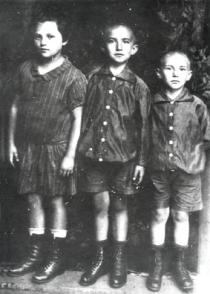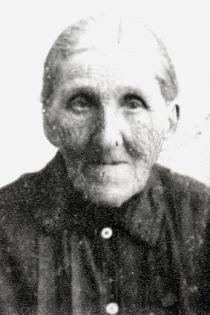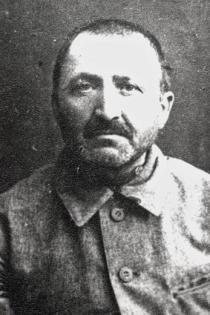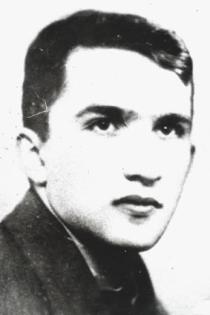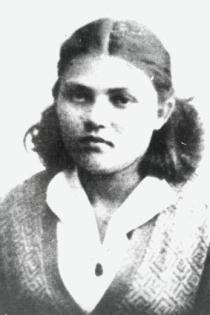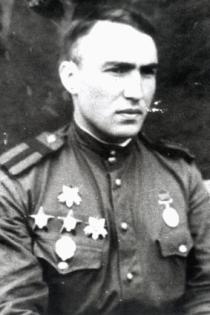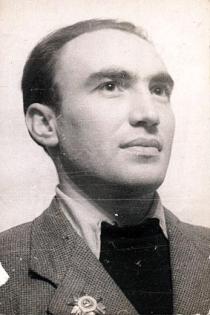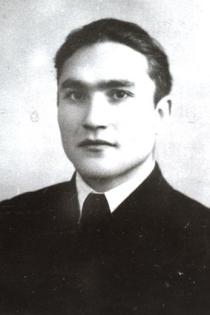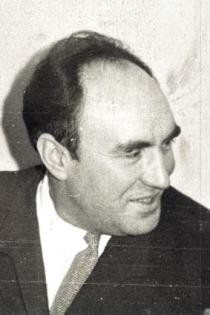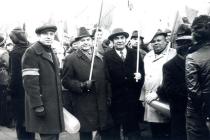This photo was taken in Leningrad in 1946. It shows my younger brother Jacob, who escaped from the ghetto by a miracle. Here I’ll tell you about him and about the way I found him after the end of the war.
In 1943 our army started preparing for full-scale offensive. Therefore they began searching among soldiers people knowing German language (to interrogate prisoners immediately after capture). I studied German at school and they chose me for that purpose. They taught us German language during a month, and after that I returned to my regiment and participated in liberation of Nevel. On October 7 we took it. For that operation our division was named Nevelsky. Fighting was hard: 30 minutes of preparatory bombardment, then tank attack, then attack of infantry. During that attack I was wounded and contused. Many splinters hit my head, my eardrum was broken. At first I was taken to the medical battalion and later (as my wound was severe) to the front hospital. There I spent more than 2 months.
Being in hospital I got to know that soon after Nevel our army liverated Liozno. Before leaving hospital I asked permission to visit my native city. The city was ruined. I got to know that all my family (except my younger brother) was executed by shooting together with other Jews (fascists even brought Jews from neighboring villages to Liozno for executing). About my brother people told me the following: he managed to leave ghetto and reach the house of Zina Popova, a friend of our sister. Family of Zina gave refuge to him for one night. Early in the morning they gave him food, and he left for somewhere. He did not feel hurt: everybody understood that all the family would be executed by shooting for keeping a Jew in concealment. Nobody knew what happened to him and I did not hope to see him alive. More likely I hoped that my elder brother was alive.
Having left people who sheltered him for one night, he almost repeated my way along neighboring woods and villages. In one of those villages people told him that they had seen me there not long ago. He spent some time at a partisan group and then they took him across the front line. He went to Chuvashia in evacuation. There he miraculously met our cousin Fanye, who was evacuated there from Leningrad with her 2 children. Fanye took Jacob to her place. He was afraid to be a burden on her and started working. His work was very hard: he helped floating logs. In 1944 when Leningrad was liberated, Fanye's husband (he was at war on the Leningrad front) sent an invitation to his wife and Jacob. In Leningrad they lodged all together and Fanye helped Jacob to find work at a factory. When I arrived in Leningrad, I invited my brother to live at my place and insisted upon his studying. It took Jacob 1 year to pass examinations for 7 classes of secondary school without attending lectures. After that he entered the Motor Transport Technical School. [Technical School in the USSR and a number of other countries was a special educational institution preparing specialists of middle level for various industrial and agricultural institutions, transport, communication, etc.] He worked at motor transport enterprises and later graduated from the Motor Transport College (correspondence course). He had got a daughter Genye (she was named in honor of our mother). Now she lives in Moscow.

